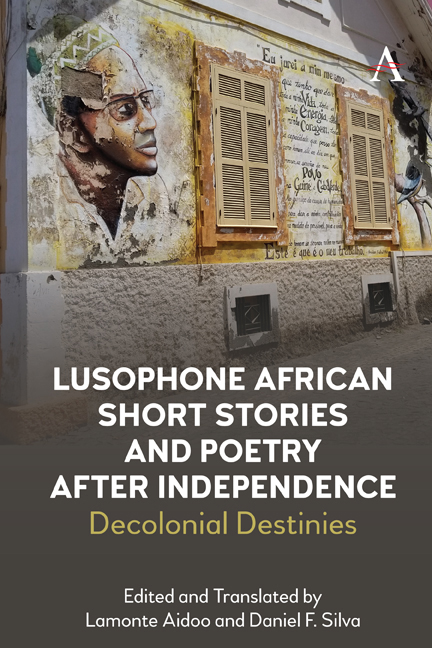Chapter 24 - Conceição Lima
Published online by Cambridge University Press: 23 February 2022
Summary
Introduction
Maria da Conceição Costa de Deus Lima, best known as Conceição Lima, was born on December 8, 1961, in the town of Santana, on São Tomé island of the São Tomé e Príncipe archipelago nation. She moved to Portugal to pursue her university studies, ultimately majoring in journalism and working in print and broadcast journalism in São Tomé e Príncipe. She went on to found the independent weekly paper, O País Hoje (The Nation Today), in 1993, serving as the publication's director for several years before pursuing a second bachelor's degree in Portuguese and Brazilian Studies at King's College in London. Immediately after completing her degree, she worked for the British Broadcast Corporation as a producer of shows with Portuguese-language content. During her time in London, Lima became a published poet in addition to a cultural and translation theorist, expanding and releasing her thesis on the work of Angolan writer Luandino Vieira as a book, Dupla Tradução do Outro Cultural em Luandino Vieira (Double Translation of the Cultural Other in Luandino Vieira, 2010), and Manual da Teoria da Tradução (Theoretical Manual of Translation, 2010).
Her first collection of poetry, O Útero da casa (The House's Uterus) was released in 2004, to significant critical acclaim and scholarly attention, and made her a recognizable voice of a San Toméan literary generation that was either born or had lived most of their formative years after independence. Her first collection thus expresses a particular temporal and geographic positionality (notably her life in London in contact with other communities of the African diaspora). This has arguably contributed to an aesthetic markedly different from most earlier writers, including other San Toméan poets included in this volume, such as Alda Espírito Santo and Olinda Beja. In this regard, the poems found in her first collection denote a consciousness of national history situated in a broader global terrain of diasporic resistance and, especially, imperial destruction. This can be seen in the ubiquitous imagery of death and ruins that are, for her part of a past, but rather current markings of a continued impact of current stages of empire—namely, late capital—that is felt and experienced by urban and rural landscapes and by the bodies that inhabit these spaces.
- Type
- Chapter
- Information
- Lusophone African Short Stories and Poetry after IndependenceDecolonial Destinies, pp. 247 - 262Publisher: Anthem PressPrint publication year: 2021

